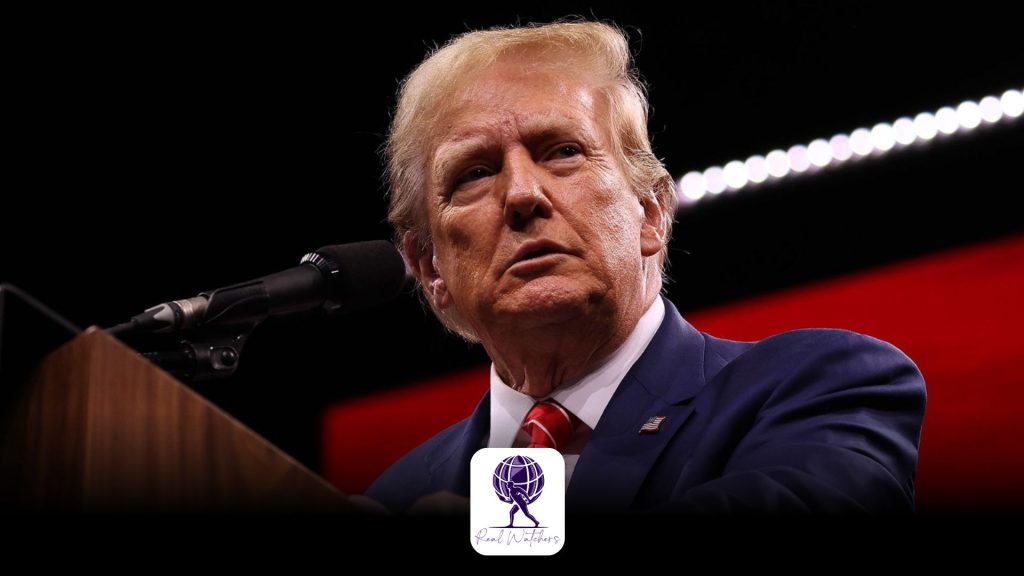On Tuesday, U.S. President Donald Trump announced plans to impose tariffs on the European Union and revealed that his administration is considering a 10% punitive duty on imports from China. This decision is linked to concerns over fentanyl being trafficked from China to the United States through Mexico and Canada.
In a press briefing at the White House, Trump reiterated his recent threats regarding tariffs just one day after assuming office, despite not implementing the tariffs he had pledged during his campaign.
On Tuesday, financial markets and trade groups experienced a moment of relief, yet the latest remarks from Trump highlighted his enduring ambition for expanded tariffs. A new deadline of February 1 has been set for imposing 25% tariffs on Canada and Mexico, along with duties targeting China and the European Union.
Trump highlighted concerns regarding the trade surpluses that the European Union and other nations maintain with the United States.
“The European Union is extremely detrimental to us,” he stated, echoing remarks earlier this week. “Tariffs are set to be imposed on them.” It is the sole method through which fairness can be achieved.
On Monday, Trump announced that he is contemplating the imposition of duties on Canada and Mexico if they do not take action to curb the trafficking of illegal migrants and fentanyl, as well as precursor chemicals from China, across their borders with the United States.
Former President Trump had warned about a 10% tariff on Chinese imports due to trade concerns but adjusted his stance about the February 1 deadline.
China expressed its readiness to engage in dialogue with the United States, aiming to manage differences and enhance mutually beneficial cooperation effectively. The foreign ministry stated that the initiative aimed to foster stable and sustainable relations with the United States.
It is widely believed that trade wars and tariff disputes yield no true victors. During a regular press briefing on Wednesday, ministry spokesperson Mao Ning asserted, “China will always firmly safeguard its national interests,” while addressing reporters.
Peter Navarro, a trade adviser at the White House, spoke to CNBC on Tuesday morning, asserting that President Trump’s threat of tariffs on Canada and Mexico was aimed at compelling both nations to take action against illegal migration and the trafficking of illicit drugs into the United States.
Navarro stated that the rationale behind the proposed percentages of 25, 25, and 10 for Canada, Mexico, and China, respectively, stems from the alarming statistic that 300 Americans lose their lives daily due to fentanyl overdoses.
On Monday, Trump unveiled an extensive immigration enforcement initiative, which features a comprehensive prohibition on asylum claims.
On Monday, Trump signed a sweeping trade memorandum, directing federal agencies to conduct thorough reviews of various trade matters by April 1.
The report examines ongoing U.S. trade deficits, highlighting issues such as unfair trade practices and currency manipulation by partner nations, particularly China. In a recent memo, Trump sought recommendations for potential remedies, including implementing a “global supplemental tariff” and modifying the $800 de minimis duty-free exemption. This exemption is frequently cited as a contributing factor to the influx of illicit imports, particularly fentanyl precursor chemicals.
The reviews provided an opportunity to address the reported conflicts among Trump’s cabinet nominees regarding implementing his proposed universal tariffs and duties on Chinese goods, which could reach as high as 60%.
Trump’s recent, more calculated stance on tariffs has sparked a rally in U.S. stocks, propelling the benchmark S&P 500 index (.SPX) to its highest point in a month. However, his latest comments regarding China and the European Union could dampen this upward trend.
According to William Reinsch, a trade expert at the Centre for Strategic and International Studies in Washington, Trump appears to have “decided to go a little slower and also to make sure he has as firm a legal foundation as he can get for these kinds of actions.” “He is strategising on how to effectively utilise his influence to achieve his goals.”
In a notable shift, Mexico and Canada adopted a conciliatory stance following President Trump’s February 1 deadline. Mexican President Claudia Sheinbaum emphasised her commitment to the nation’s sovereignty and independence, stating that she would address U.S. actions “step by step.”
She emphasised that the U.S.-Mexico-Canada free trade agreement would not be subject to renegotiation until 2026. This statement was intended to counter any speculation regarding Trump’s potential push for an early overhaul of the agreement, which supports over $1.8 trillion in annual trade among the three nations.
Corn farmers express concern over U.S. tariffs and retaliatory duties that threaten trade with Mexico, their primary export market for corn, and Canada, the leading export destination for U.S. corn-derived ethanol.
“We recognise his tendency to engage in negotiations,” stated Illinois farmer Kenny Hartman Jr., who serves as board president of the National Corn Growers Association, regarding Trump. “There is a strong desire to emerge from this situation without sacrificing exports, particularly the corn destined for Mexico and the ethanol intended for Canada.”








